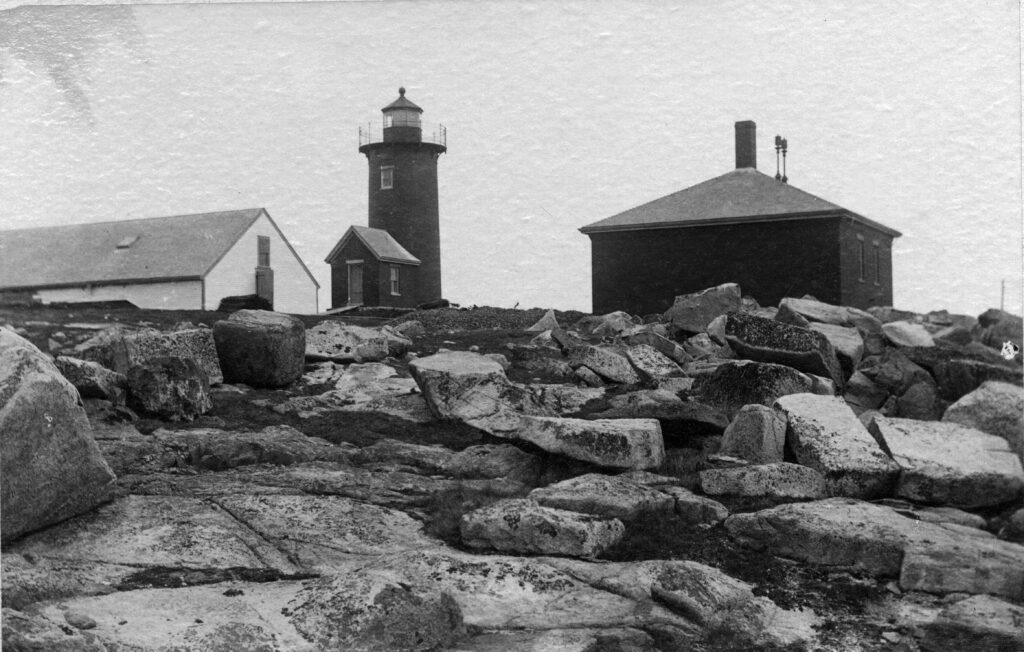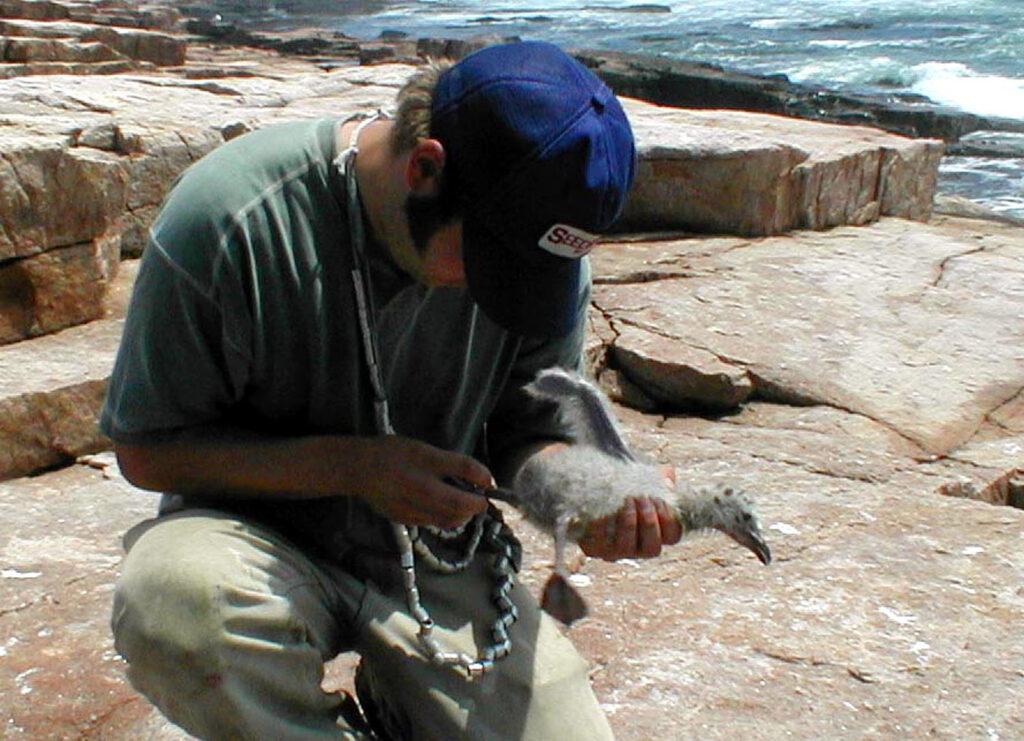 |
| Early photo of Great Duck Island Lighthouse; fog signal building to the right. National Archives image 26-LG-2-32F. |
The light was automated in 1986 and the fourth-order Fresnel lens was replaced by a modern optic. The light remains an active aid to navigation, while most of the rest of the island was purchased by the Maine Chapter of the Nature Conservancy in 1984.
 |
| A student bands a gull chick at Great Duck Island |
In 1998 Great Duck Island Light Station, along with Mount Desert Rock Light Station, became the property of Bar Harbor’s College of the Atlantic under the Maine Lights Program. College of the Atlantic owns approximately 12 acres on Great Duck Island, consisting of the one remaining keeper’s house, two boathouses, and the lighthouse. Students and staff from the college now live in the former keeper’s dwelling much of the year. The College of the Atlantic’s ongoing research projects on the island include the monitoring of the large nesting gull population, as well as detailed study of black guillemots and the nocturnal Leach’s storm petrel.
 |
| John Anderson (COA) |
His field research centers around Great Duck Island. He says that he’s interested in the intersection between natural history and human history in relation to long-term ecological processes.